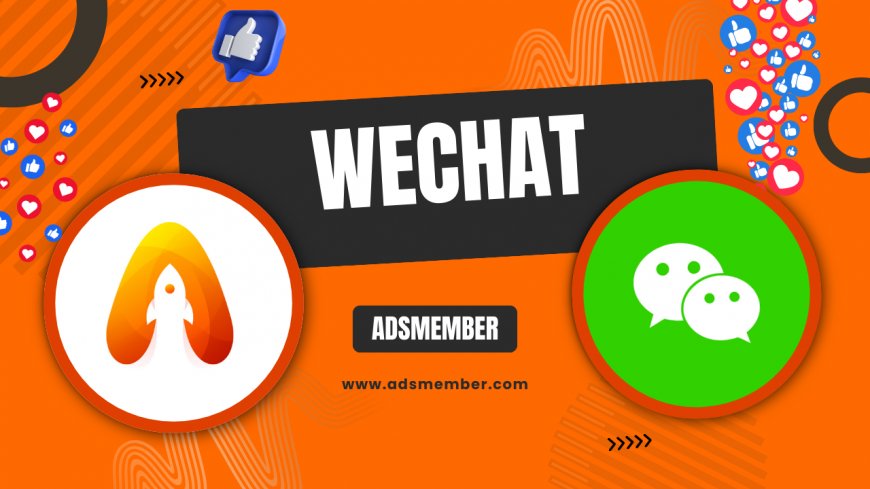Who Owns WeChat? Uncovering the Power Behind the App
Curious about who owns WeChat? Discover Tencent Holdings, the powerhouse behind the app, its history, and global impact in this detailed guide.

Ever wondered who owns WeChat, the app that’s practically a digital lifeline for over a billion users? I’ve been fascinated by its dominance in China and beyond, so I dug deep to uncover the story. WeChat isn’t just a messaging app; it’s a super-app for payments, social networking, and even government services. But who’s behind this tech giant? Spoiler: it’s not a solo visionary but a massive corporation. Let’s break down the ownership, history, and influence of WeChat in a way that’s easy to grasp.
The Owner of WeChat: Tencent Holdings
If you’re asking, 'Who owns WeChat?' the answer is straightforward: Tencent Holdings. Based in Shenzhen, China, Tencent is a tech conglomerate founded in 1998 by Ma Huateng (aka Pony Ma) and a small team. Honestly, their growth is mind-blowing—they’ve gone from a startup to a global powerhouse worth over $500 billion at times. Tencent launched WeChat in 2011, and it’s now their crown jewel.
What Is Tencent’s Role in WeChat?
Tencent isn’t just a parent company; they’re the brains and bankroll behind WeChat’s innovation. They oversee development, monetization (think in-app purchases and ads), and global expansion. What’s wild is how they’ve integrated WeChat into daily life in China—paying for groceries, booking doctor appointments, even filing taxes. In my opinion, Tencent’s vision to make WeChat an 'everything app' is why it’s untouchable in its market.
A Brief History of WeChat and Tencent
WeChat, or 'Weixin' in Chinese, launched as a humble messaging app in 2011. Tencent already had a hit with QQ, a desktop chat platform, but they saw the mobile wave coming. I find it incredible how fast WeChat evolved—by 2013, it had mini-programs and payment features. Today, with over 1.2 billion monthly active users (as per Tencent’s 2022 report), it’s a cultural phenomenon. Tencent’s knack for innovation keeps them ahead.
How Tencent Built a Tech Empire
Tencent started with gaming and messaging but diversified into cloud computing, AI, and entertainment. They own stakes in Riot Games (think League of Legends) and Epic Games. What’s unique, in my view, is how they balance government compliance in China with global ambitions. WeChat’s success isn’t luck—it’s Tencent’s strategic acquisitions and tech investments paying off.
WeChat’s Global Impact and Ownership Controversies
WeChat isn’t just China’s app; it’s a global player, especially for diaspora communities. But its ownership by Tencent has sparked debates. Some governments, like the U.S., have raised concerns over data privacy due to Tencent’s ties to China’s regulatory environment. Honestly, it’s a tricky balance—innovating for users while navigating geopolitical tensions. If you’re curious about privacy, check out our Social Media Privacy Tips.
Data Privacy Concerns with Tencent
Here’s where it gets messy. Tencent must comply with China’s strict data laws, meaning user info could be accessible to authorities. A 2021 report by Statista noted that 78% of surveyed users worried about privacy on Chinese apps (Statista). I feel torn—WeChat’s utility is unmatched, but transparency is lacking. My tip? Use it for non-sensitive chats only.
Case Study: How Tencent Turned WeChat Into a Super-App
Let’s look at a real-world example. In 2014, Tencent integrated WeChat Pay, revolutionizing mobile payments in China. A small vendor in Shanghai I read about went from cash-only to earning 80% of revenue via WeChat Pay within a year. Their secret? Tencent’s low transaction fees and user-friendly QR code system. My analysis: Tencent’s focus on ecosystem integration—linking payments, social, and services—created a sticky platform users can’t leave.
Comparison Table: WeChat vs. Other Messaging Apps
| App | Owner | Monthly Active Users (2022) | Key Features |
|---|---|---|---|
| Tencent Holdings | 1.2 Billion (Tencent Report) | Messaging, Payments, Mini-Programs | |
| Meta | 2 Billion (Meta Report) | Messaging, Calls, Business Tools | |
| Telegram | Independent (Durov Brothers) | 700 Million (Telegram Blog) | Encryption, Groups, Bots |
This table shows how WeChat’s user base and feature set stand out, especially with mini-programs—something WhatsApp and Telegram lack. Tencent’s ownership fuels this innovation, in my opinion.
Unique Tip: Using WeChat for Business Without Risks
Here’s a tip you won’t find everywhere: if you’re a business owner using WeChat for marketing in China, create a separate Official Account for promotions and avoid sharing sensitive client data. Use a VPN for added security—I’ve seen small businesses hacked due to lax precautions. Also, leverage WeChat’s QR code feature for offline-to-online campaigns. It’s a game-changer for foot traffic.
Technical Insight: WeChat Mini-Program Code Snippet
For developers curious about WeChat’s ecosystem, here’s a basic structure for a Mini-Program using their API. This isn’t full code but a starting point:
// app.json for WeChat Mini-Program
{
"pages": [
"pages/index/index"
],
"window": {
"navigationBarTitleText": "My Mini-Program"
}
}
This snippet shows how lightweight Mini-Programs are. Tencent’s developer tools make integration a breeze, which is why brands flock to WeChat.
FAQ: Who Owns WeChat?
WeChat is owned by Tencent Holdings, a Chinese tech giant founded in 1998 by Ma Huateng. Headquartered in Shenzhen, Tencent manages WeChat’s development, monetization, and global strategy.
FAQ: Is WeChat Safe to Use?
Honestly, it depends on your priorities. WeChat’s data is subject to Chinese regulations, so privacy isn’t guaranteed. Use it for casual chats, not sensitive info, and consider a VPN.
FAQ: Why Is Tencent So Powerful?
Tencent’s power comes from diversification—gaming, cloud services, and apps like WeChat. Their 1.2 billion user base and government alignment in China solidify their dominance.
FAQ: Can Foreign Companies Use WeChat?
Yes, foreign companies can use WeChat for marketing via Official Accounts. It’s a goldmine for reaching Chinese consumers, but navigate privacy laws carefully.
What's Your Reaction?
 Like
0
Like
0
 Dislike
0
Dislike
0
 Love
0
Love
0
 Funny
0
Funny
0
 Angry
0
Angry
0
 Sad
0
Sad
0
 Wow
0
Wow
0




















































